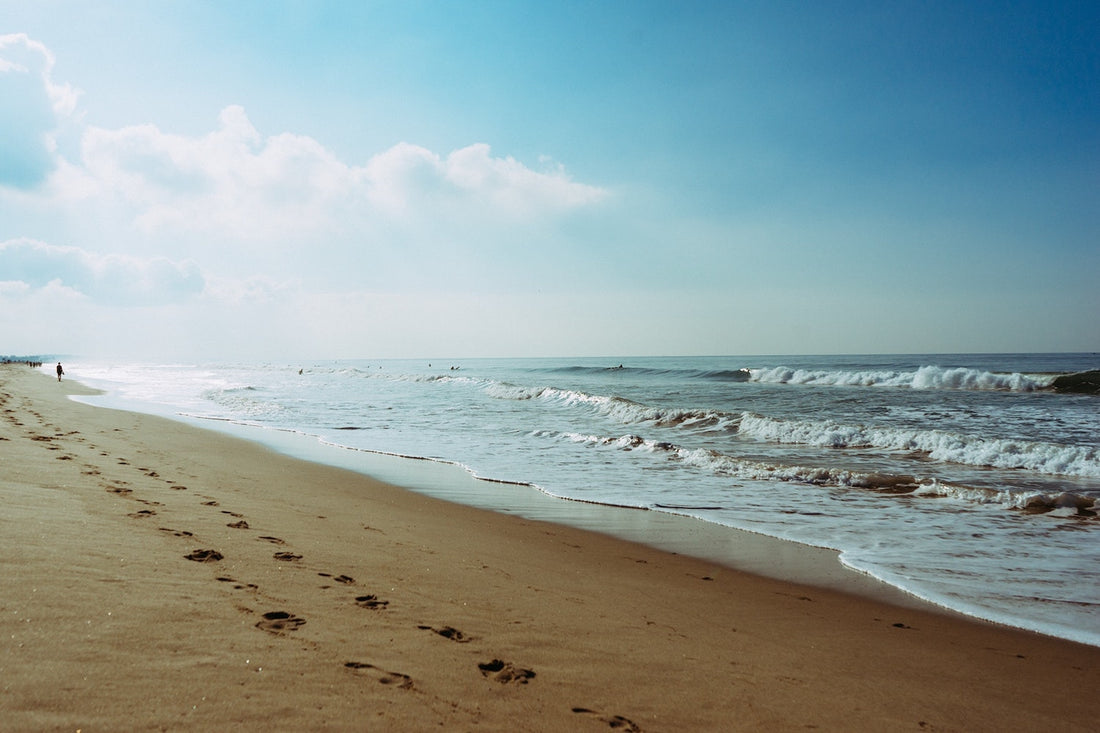
Everything you need to know about your ecological footprint

By Tayla Smith
All human activity has an impact on planet earth. What we eat, how we travel, the size of our homes and our waste, our recycling practices, they all impact the supply and demand of the world's resources.
Over the past few decades, human activity has resulted in overharvesting forests, overfishing, and emitting more carbon dioxide into the atmosphere than can be physically regenerated.
This all comes down to our “Ecological Footprint” - which may be one of the most important terms to familiarise ourselves with if we want to get serious about reducing our environmental impact.
Why is our Ecological Footprint so important?
The Global Footprint Network states that ecological footprint measures “how fast we consume resources and generate waste compared to how fast nature can absorb our waste and generate new resources”.
Simply put, it’s a way to measure how much of the environment is required to sustain your particular lifestyle. Every individual, household, business, city and country has their own ecological footprint.
To give you an idea, mine is 3.3 global hectares and 1.9 planet Earths. This means that if every person lived like me, we would need 1.9 planet Earth's to sustain us. I also need 3.3 global hectares of biologically productive land to sustain my lifestyle. To put this into perspective, there are currently only 1.7 global hectares available per person worldwide.

As another example, Australia’s ecological footprint is approximately 3.5 planet earth's. The world’s footprint is 1.7, and it now takes 1.5 years to regenerate the resources we use in a single year.
Our lifestyle, behaviours and activities essentially result in carbon emissions. Everything we consume, from animal products to plant-based foods, requires grazing land, cropland and fishing grounds.
If we live by ourselves, we use more electricity and emit more carbon dioxide - compared to living with roommates, where the electricity and carbon emissions are shared between the number of people we live with.
The same goes for transport. You may be one single person driving one car, or travelling on one bus but sharing the carbon emissions with 20 other people.
So, how do you measure my own ecological footprint?
Your ecological footprint is calculated by adding up all of your demands that compete for biologically productive space, as well as equivalent waste products.

This could include the grazing land to raise livestock for meat and dairy products; the cropland used to grow food, animal feed or cotton; the fishing grounds for fish and seafood; built-up land for housing, industrial structures and transport; and forests to supply timber as well as sequester carbon dioxide emissions (storage of carbon dioxide to slow the atmospheric accumulation of greenhouse gas).
An ecological footprint calculator will measure things like:
- How much animal product you consume and how much of your diet is unprocessed, unpackaged and locally grown.
- What type of house you live in (a house, duplex, unit etc.) and how many people you live with.
- How much electricity you use and if your appliances are energy efficient.
- If you travel by car or public transport and how many hours a year you would spend on an aeroplane
Just to name a few. Truthfully, I honestly had no idea how damaging my lifestyle was until I calculated my ecological footprint a few years ago for a University assignment.
Not only do the results tell you the exact global hectares or number of planet earth’s your lifestyle requires but also breaks down your land and consumption use and carbon emissions.
While ecological footprints can seem complicated, it’s important to understand your individual footprint if you really want to reduce your environmental impact. The best thing to do is simply jump online and calculate your own.
Click here to calculate your own.
Stay tuned for Part 2, as we go in-depth on the results and share our tips to help you decrease your ecological footprint and live a more environmentally friendly lifestyle.
Tayla has a passion for researching and writing about our overall health, wellbeing and the environment. After completing her Bachelor’s Degree in Public Health and Health Promotion, Tayla has focused on becoming a freelance writer. Contact her via email, website and social media coming soon.

